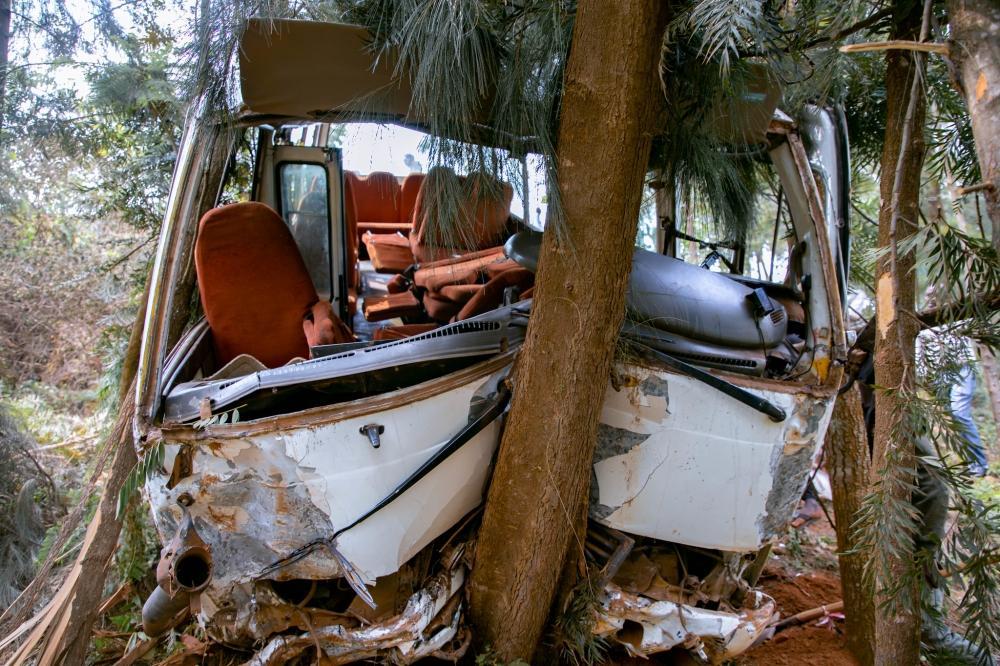Africa-Press – Rwanda. The Rwandan Parliament will on Wednesday, September 17, vote on a new bill aimed at reforming the framework for compensating accident victims in Rwanda.
The draft law on accident victim compensation, which was tabled on June 11, 2025, by the Ministry of Finance and Economic Planning, seeks to introduce critical reforms aimed at addressing the identified gaps and establishing a fair, sustainable, and harmonised compensation framework.
Harmonising compensation for damage caused by vehicles and animals
Currently, accident compensation in Rwanda is governed by two separate laws: the law of 2001 relating to the compensation of victims of physical accidents caused by motor vehicles, and the law of 2011 on compensation of damage caused by animals.
However, the implementation of these laws has revealed weaknesses, including a lack of harmonisation whereby victims in similar situations can be compensated differently depending on which law applies.
To solve the problem, the bill proposes a unified legal framework: the two existing laws will be consolidated into a single, comprehensive law to ensure consistency in compensation processes and eligibility.
Addressing the issue of inflated claims
In the explanatory note of the bill, the government indicated that accident victims often submit unfair or exaggerated invoices.
The new bill suggests that refunds for expenses related to corporal (physical) injury must be supported by electronic invoices from a system recognised under tax legislation. If unavailable, expenses may be adjusted through mutual agreement, according to market prices.
Compensation guidelines on disability rating to deal with assessment issues
Compensation often relies on inaccurate disability ratings due to limited medical expertise and reliance on the Belgium-made “BOI – Barème Officiel des Invalidités” scale, which does not correspond to Rwandan realities, according to the Ministry of Finance and Economic Planning.
Compensation for permanent incapacity will be based on the Rwanda Disability Rating Scale, determined by a competent medical doctor. The bill proposes that the Minister of Health will establish this scale.
It defines permanent incapacity as a physical disability or psychological impairment that prevents a person from working permanently at a level determined by a competent doctor.
A person with permanent incapacity is entitled to compensation for financial loss or loss of future earnings. There’s also pretium doloris (pain and suffering) compensation; compensation for aesthetic injury; compensation for loss of marriage opportunity; compensation for loss of career opportunities.
Children under 16 to be eligible for accident damage compensation
The draft law provides that a person who has suffered a permanent incapacity and beneficiaries of a person killed in an accident are entitled to compensation, including compensation for financial loss.
It introduces compensation for loss of future earnings for children under 16 who suffer permanent disabilities or die in accidents. The compensation covers the potential years of employment, which currently refer to the period between the age of 16 and retirement or 65.
Basis for calculation of compensation in case of unverifiable income
When victims or their beneficiaries cannot provide proof of income, compensation will be based on the tax-free income threshold (Rwf60,000 per month or Rwf2,000 per day), instead of the current Supreme Court-set benchmark of Rwf3,000 per day (Rwf90,000 per month), which insurers find excessive.
Funeral and moral damages for the family of deceased victims
Beneficiaries of deceased victims are entitled to compensation for funeral expenses, financial loss, and moral wrong – compensation paid to the family of a person killed in an accident.
Eligibility for compensation
Those entitled to compensation include individuals injured or whose property is damaged in insured or non-insured accidents; persons injured by animals inside national parks or other protected areas while working or visiting with official authorisation; persons injured or killed by wild animals outside national parks, as listed by the Minister in charge of Environment; and beneficiaries of individuals killed in such situations.
For More News And Analysis About Rwanda Follow Africa-Press






